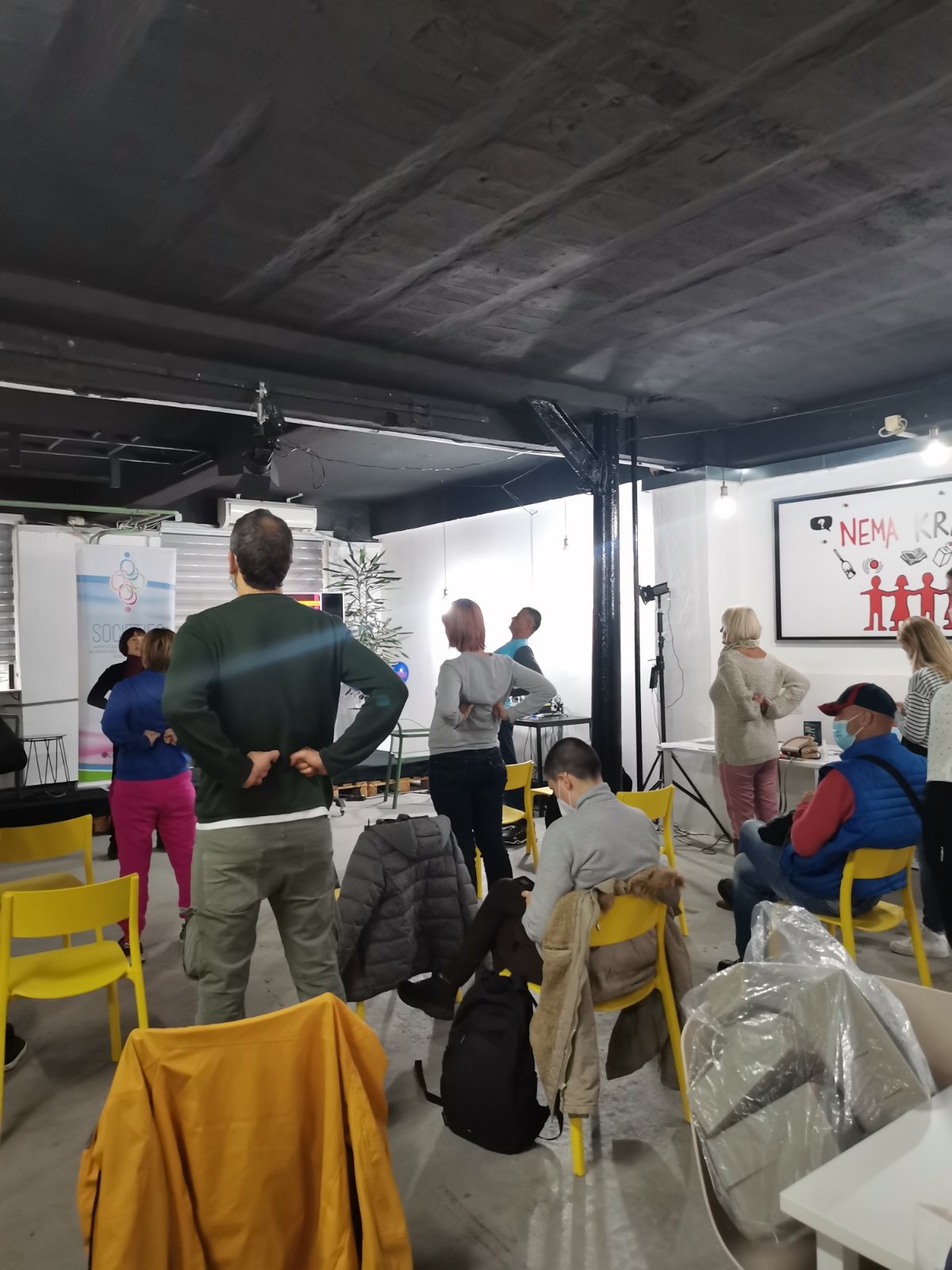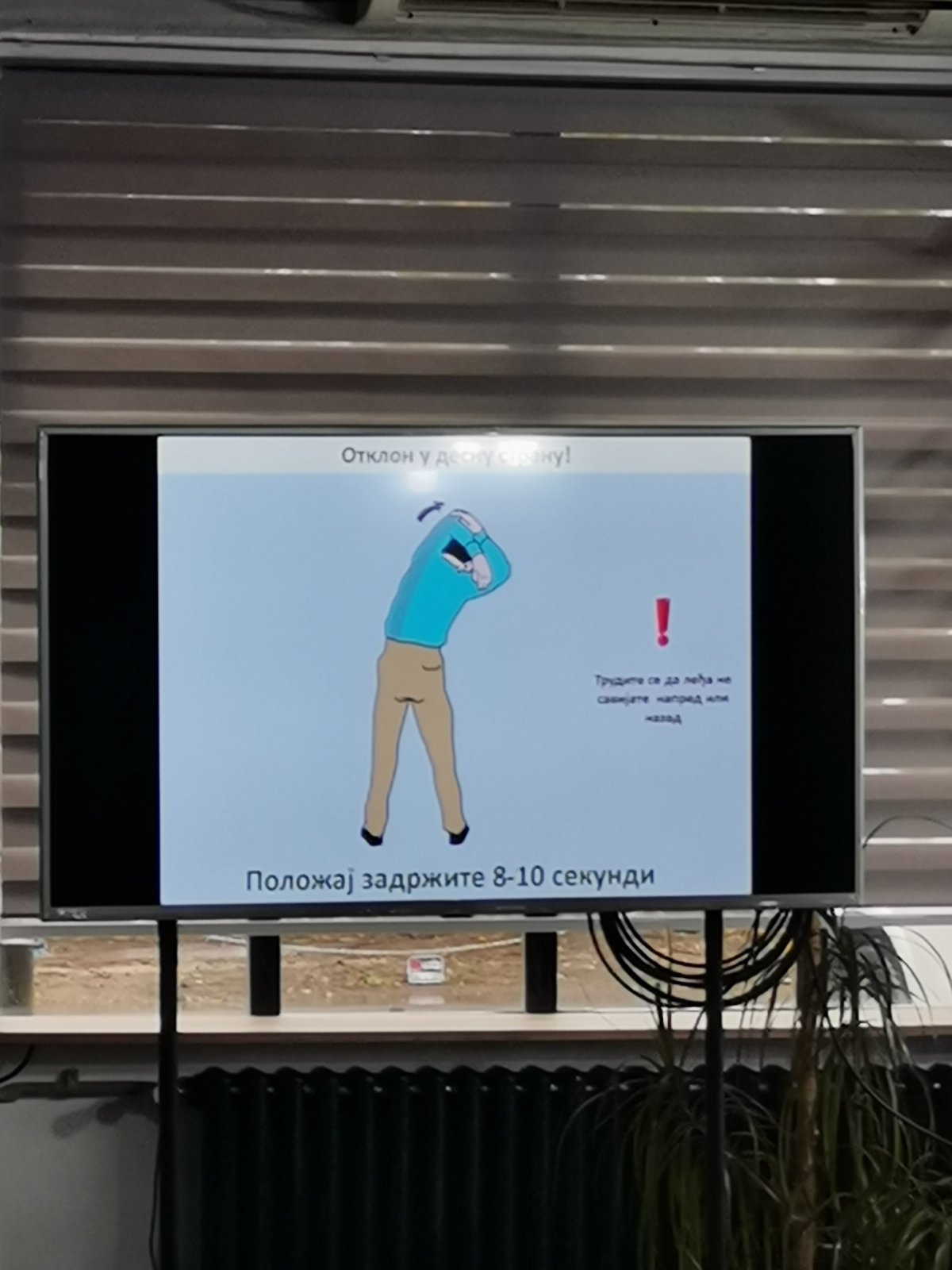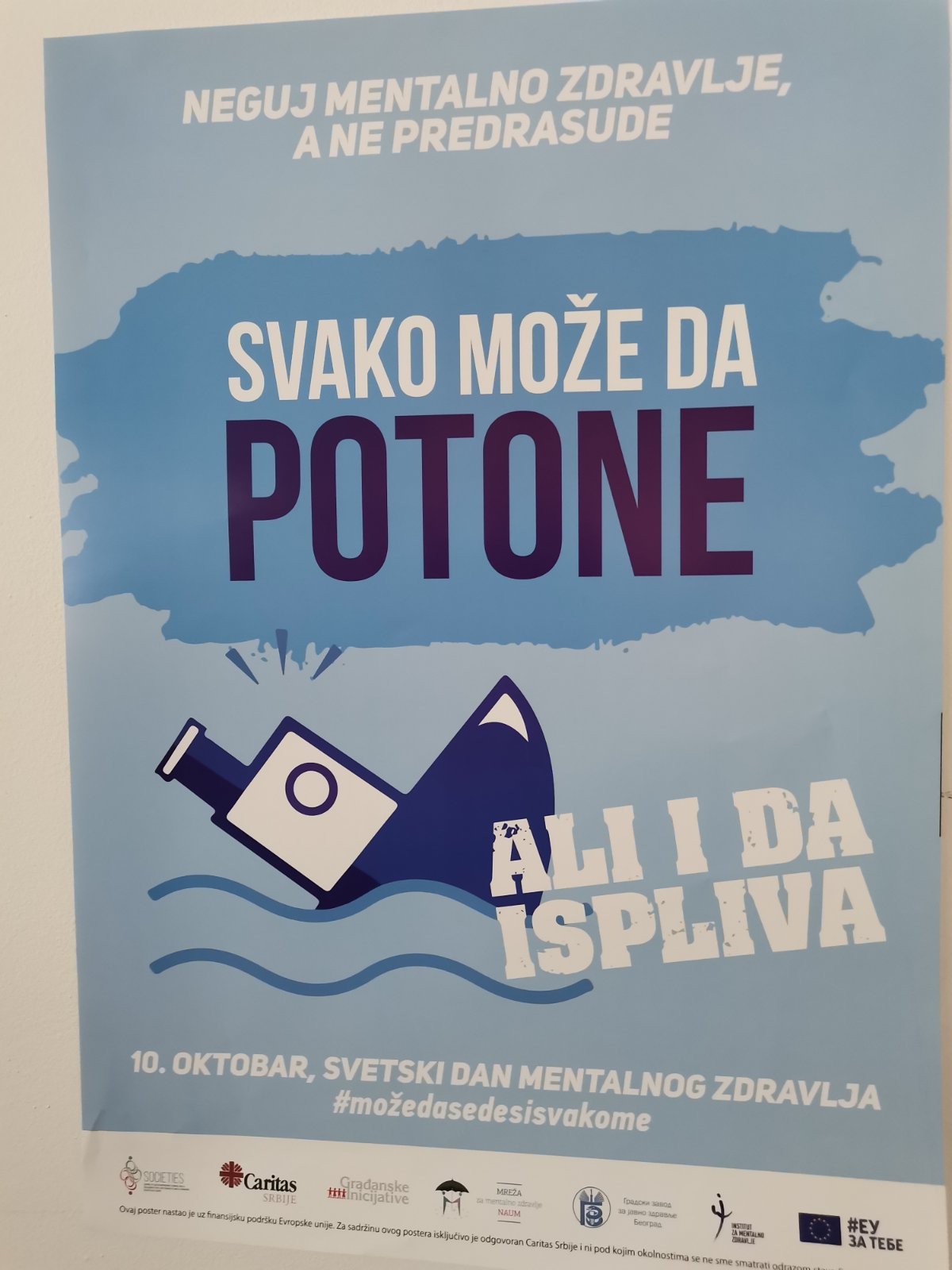World Mental Health Day marked

Red Cross of Serbia branches in cities and municipalities marked the World Mental Health Day, October 10, with various activities, including lectures, workshops and street events, while respecting all epidemiological measures. World Mental Health Day has been observed for almost three decades, since 1992 and this year the theme was "Mental health in an unequal world" with special emphasis placed on the need for access to mental health services for all, especially in the global pandemic COVID-19. Among other effects, the pandemic has had a severely negative impact on the mental health of the population around the world.
The World Health Organization emphasizes that good mental health is also called "emotional health" or "well-being" and is just as important as good physical health. Good mental health is characterized by a person's ability to perform a number of key functions and activities such as the ability to learn, manage their emotions, build relationships with other people, cope with unforeseen circumstances and uncertainty in life.
Many people who live with a mental health problem, or are just developing these problems, try to cover this up because they are afraid of the reactions of others. However, mental health problems are very common and it is important to keep this in mind in order to remove the stigma. According to the results of various researches, on average, one in six people experiences some of the usual mental health problems within a week. Access to mental health services is unequal, as between 75% and 95% of people with mental disorders in low- and middle-income countries cannot access mental health services at all, and access in high-income countries is not significantly better. Insufficient investment in mental health in relation to overall health budgets contributes to a number of shortcomings in the field of treatment, diagnosis and support for people with mental health problems.
Stigma and discrimination in persons with mental illness not only affect their physical and mental health, but also their educational opportunities, their current and future income and employment prospects, and also have a major impact on their families and loved ones. The COVID-19 pandemic further highlighted the impact of inequality on the health outcomes of the population. The pandemic will continue to affect people of all generations in a variety of ways: from the direct impact on physical health, through individual and global economic effects (job loss, economic insecurity, recession) to the mental health effects of isolation, distancing and long-term epidemiological danger.
By participating in the celebration of the World Mental Health Day, the Red Cross of Serbia branches have shown that health and well-being can be achieved only if equal attention is paid to physical and mental health.
On this occasion, the representative of the Red Cross of Serbia, Natasa Todorovic, at the invitation of Caritas and PIN – Psychosocial Innovation Network, attended the first Mental Health Festival under the slogan "Building a safe space for mental and sexual health", thus creating synergies between several projects funded by the European Union in the Republic of Serbia, which are implemented by Caritas (SOCIETIES 2) and the Red Cross of Serbia (COVID-19 Resilience).





